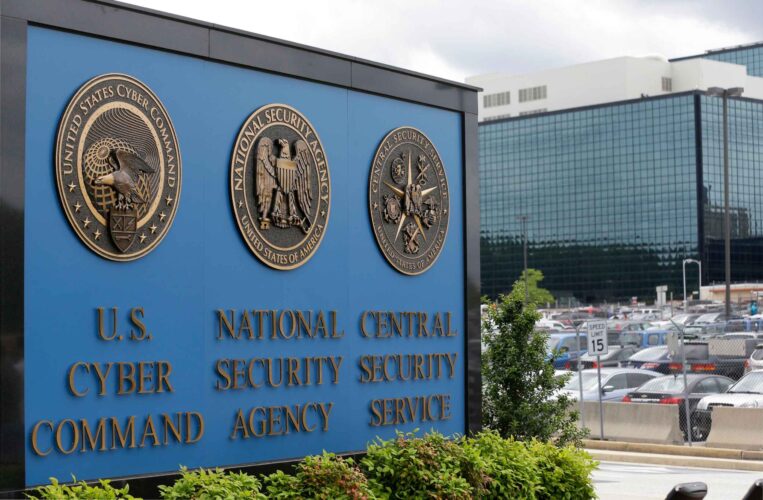The Senate has voted to advance a new bill to reauthorize the Foreign Intelligence Surveillance Act (FISA) containing a “terrifying” provision to expand the government’s domestic spying powers. Section 702 of the bill, referred to as RISAA, represents the biggest expansion of government surveillance powers since the Patriot Act, according to espionage experts.
The Senate voted 67-32 on a motion to push the bill forward to a debate. Two more steps will need to occur before they hold a vote on the legislation. “We obviously don’t have a lot of time left before FISA authorities expire. In fact, less than two days,” Majority Leader Chuck Schumer (D-NY) said, referring to FISA’s alleged expiration date of April 19th.
The House of Representatives voted 273-147 in favor of the bill (126 Republicans and 147 Democrats) after narrowly rejecting an amendment to enhance warrant requirements for spying activity involving American citizens.
“This bill represents one of the most dramatic and terrifying expansions of government surveillance authority in history. I will do everything in my power to stop it from passing in the Senate,” Congressman Wyden had said earlier this week.
This bill represents one of the most dramatic and terrifying expansions of government surveillance authority in history. I will do everything in my power to stop it from passing in the Senate. https://t.co/SAtcvDh1PD
— Ron Wyden (@RonWyden) April 12, 2024
Learn the benefits of becoming a Valuetainment Member and subscribe today!
As Elizabeth Goitein, co-director of the Liberty and National Security Program at the Brennan Center for Justice, explains, the new reauthorization will expand the types of communications the government can collect from foreign targets—which can and already does include communications they have with American citizens.
The new bill, written by the House Intel Committee Permanent Select Committee on Intelligence (HPSCI), changes the definition of “electronic communications surveillance provider” to encompass a far greater number of companies that play a role in communications, whether they provide routers, servers, cell tower, or anything else that transmits digital messages. This will also include businesses and properties that provide WIFI to their customers, tenants, and employees. When a FISA Court amici pushed back, the legislators removed some categories of businesses from the list (hotels, library shops, coffee shops, among others) but the overwhelming majority remain.
In practice, that means companies like Verizon and Google must turn over the communications of the targets of Section 702 surveillance. (The targets must be foreigners overseas, although the communications can—and do—include communications with Americans.) 4/25
— Elizabeth Goitein (@LizaGoitein) April 15, 2024
As Goitein put it, the National Security Agency (NSA) would effectively be operating off an “honor system,” giving an unverifiable promise that it will strictly use the system to acquire information on foreign adversaries. She goes on to say that the HPSCI defended the bill by saying it was only a single service provider it wanted to acquire files from, but did not name which provider it was in order to intentionally leave it open-ended.
“There are certain powers a government should not have in a democracy,” Goitein argued. “The ability to force ordinary businesses and individuals to serve as surrogate spies is one of them. Even if the targets are supposed to be foreigners, a power this sweeping WILL be abused.”
Goitein claims that the expiration date of FISA, set for April 19th, is a charade to create a fake sense of urgency around the situation to get the Senate to pass it quicker. She explains that the Biden administration, which supports the reauthorization, already obtained approval from a FISA Court to extend Section 702 surveillance until April 2025.
At first, conservative detractors mounted an opposition to the legislation, but let down their guard when Speaker Mike Johnson (R-LA) formed a deal with them. It appears the reauthorization will only be good for two years instead of the original five.
The amendment to curtail domestic government spying powers, introduced by Rep. Andy Biggs (R-AZ), was to force law enforcement agents to obtain court-issued warrants to search communications of American citizens and residents collected while surveilling foreigners. While the amendment failed, Johnson has agreed to allow a floor vote on a bill introduced by Rep. Warren Davidson (R-OH) that would require law enforcement to obtain warrants to buy the data of US citizens from tech firms and middlemen.
“We just brought President Trump an at bat,” remarked Rep. Matt Gaetz (R-FL), referring to Trump’s comment this week that he wants to “kill” FISA. “The previous version of this bill would have kicked reauthorization beyond the Trump presidency. Now President Trump gets an at bat to fix the system that victimized him more than any other American.” Gaetz was one of the 19 conservative lawmakers that opposed the bill.
The Senate just voted to bring the House FISA bill to the floor for consideration and may not even allow votes on amendments. This issue demands a debate about meaningful reforms, not a rushed vote to rubber-stamp more warrantless government surveillance powers.
— Ron Wyden (@RonWyden) April 18, 2024
 Shane Devine is a writer covering politics and business for VT and a regular guest on The Unusual Suspects. Follow Shane’s work here.
Shane Devine is a writer covering politics and business for VT and a regular guest on The Unusual Suspects. Follow Shane’s work here.


















Add comment